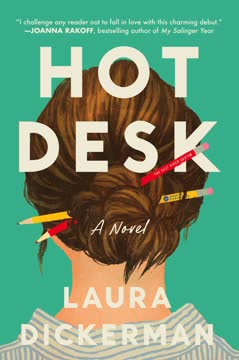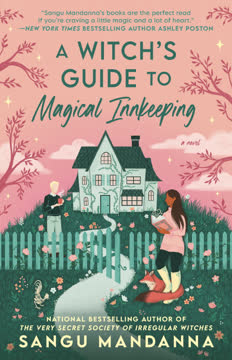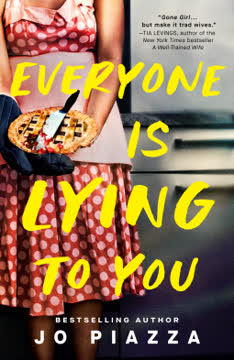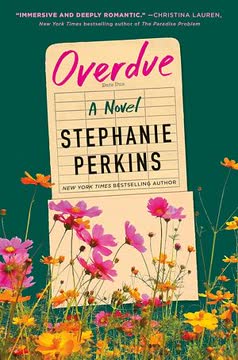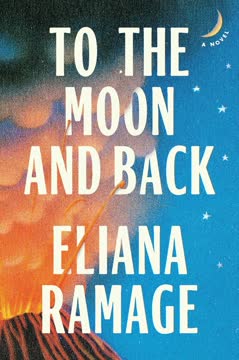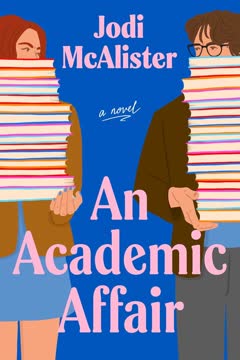Plot Summary
Desk Wars Begin
Rebecca, a young editor at Avenue Publishing, returns to the office after pandemic remote work, only to find her private space replaced by a "hot desk" she must share with a stranger, Ben, from rival imprint Hawk Mills. The new open-plan, desk-sharing policy is a blow to her sense of identity and control, and the cactus left by her unknown desk partner becomes a symbol of her frustration. As she navigates the new office politics, Rebecca's sense of belonging and professional confidence are shaken, setting the stage for a battle of territory, pride, and adaptation in a rapidly changing workplace.
Office Gossip and Alliances
Rebecca leans on her work best friend Gabe and her quirky assistant Chloe to survive the chaos of the new office dynamic. Gossip swirls about the mysterious Ben, her desk-mate, and the company's future. The staff's personalities—Mrs. Singh from HR, the ever-present marketing team, and the competitive editors—create a vibrant, sometimes cutthroat environment. Rebecca's relationships are both a source of comfort and anxiety, as she tries to maintain her footing amid shifting alliances, generational divides, and the relentless pressure to prove herself in a world that seems to value flexibility over stability.
The Lion's Legacy
News breaks that Edward David Adams, the "Lion" of American letters, has died, leaving behind a complicated estate and rumors of unpublished work. Both Avenue and Hawk Mills see the Lion's legacy as a potential lifeline in a struggling industry. Rebecca is unexpectedly summoned by Rose Adams, the Lion's widow, who requests her by name for reasons unknown. Meanwhile, Ben, a new editor and lifelong Lion devotee, is tasked by his boss Caro to leverage his connection to the Lion's troubled son, Atticus, to win the estate for Hawk Mills. The stage is set for a high-stakes literary tug-of-war.
Ghosts of the Past
Rebecca's mother, Jane, is revealed to have a mysterious connection to the Lion's world, having interned at the East River Review with Rose decades earlier. Flashbacks to 1980s New York show Jane and Rose as ambitious young women swept up in the literary scene, their friendship tested by the Lion's charisma and predatory power. The past is not just prologue—it's a living force shaping the present, as secrets, betrayals, and unspoken wounds begin to surface, threatening to upend both women's lives and Rebecca's understanding of her own history.
Mothers, Daughters, Secrets
Rebecca's relationship with her mother is strained by Jane's evasiveness about her past and her role in the Lion's circle. As Rebecca is drawn deeper into the estate negotiations, she discovers that her mother's silence hides both trauma and lost dreams. The generational divide between them is bridged by their shared love of words, but also by the pain of what was left unsaid. Jane's story—her ambitions, her friendship with Rose, and her encounter with the Lion—becomes central to understanding the stakes of the present-day battle for the Lion's legacy.
Rival Editors Collide
Ben and Rebecca's professional rivalry is complicated by their growing personal attraction and mutual annoyance. Their desk becomes a battleground of passive-aggressive notes, spilled snacks, and symbolic gestures. Both are tasked with winning the Lion's estate for their respective publishers, but their approaches—and their values—clash. As they spar over office politics, literary ethics, and the meaning of legacy, their banter masks deeper vulnerabilities and desires, setting the stage for a collision that is as emotional as it is professional.
The Manuscript Hunt
The discovery of an unpublished Lion manuscript, Making the Sun Run, throws everyone into a frenzy. Atticus, the Lion's erratic son, gets his hands on the only copy and threatens to sell or leak it. Ben and Rebecca, now reluctant allies, race to recover the manuscript before it can be published or weaponized. Their quest takes them through a maze of office intrigue, late-night bars, and emotional minefields, forcing them to confront not only Atticus's demons but their own motivations and loyalties.
Confessions and Confrontations
Jane finally confesses to Rebecca the truth about her past with the Lion and Rose, including the trauma she endured and the choices she made. Rose and Jane reunite, their friendship rekindled by honesty and mutual support. Ben and Rebecca's rivalry reaches a breaking point, but so does their attraction, culminating in a night of vulnerability and connection. The manuscript's fate hangs in the balance, as all parties must decide what stories deserve to be told—and who gets to tell them.
The Truth About Jane
Jane and Rose, empowered by their reunion and the support of their daughters and friends, decide to write their own account of the Lion's era—a memoir that centers their voices and experiences. The Lion's manuscript, exposed as self-serving and damaging, is ultimately suppressed, but not before it forces a reckoning with the past. Jane's journey from silence to authorship becomes a model for reclaiming agency, healing, and the power of women's friendship in the face of patriarchal mythmaking.
Love, Loss, and Second Acts
Rebecca and Ben, having survived the gauntlet of office politics, literary intrigue, and personal baggage, find themselves drawn together by mutual respect and genuine affection. Jane and Rose, now collaborators, embrace the possibility of late-life reinvention. The Lion's legacy is reframed—not as the story of a solitary genius, but as a tapestry of voices, relationships, and reckonings. The characters learn that love, ambition, and forgiveness are not mutually exclusive, and that second acts are possible at any age.
The Lion's Cage Opens
The publication of Jane and Rose's memoir, Inside the Lion's Cage, becomes a literary sensation, challenging the myth of the male genius and offering a counternarrative to the Lion's self-aggrandizing legend. Avenue's reissues of the Lion's work, now contextualized by critical introductions from women writers, spark debate and renewed interest. The industry, and the characters, are changed by the act of telling the truth—messy, painful, and liberating. The "cage" of the Lion's legacy is opened, and new stories are set free.
New Narratives, New Futures
Rebecca leaves Avenue to launch a branding firm with her best friend Stella, helping women creators find their voices and audiences. Ben becomes a respected editor, championing diverse stories and supporting Jane and Rose's memoir. Jane, at last, publishes her own novel, edited by Rose. The characters' professional and personal lives are intertwined, shaped by the lessons of the past and the possibilities of the future. The office, once a site of conflict, becomes a place of collaboration and growth.
Epilogue: After the Roar
Eighteen months later, the ripple effects of the Lion's death and the women's memoir are felt across the literary world. The Lion's work is read with new eyes, his flaws and gifts in full view. Jane and Rose's memoir is celebrated for its honesty and insight. Rebecca and Ben, now living together, have found both professional fulfillment and personal happiness. The cactus, once a symbol of rivalry, now thrives on their windowsill—a testament to the messy, beautiful work of growth, forgiveness, and love.
Characters
Rebecca Blume
Rebecca is a sharp, witty, and sometimes neurotic editor at Avenue Publishing, struggling to adapt to a post-pandemic world that has upended her sense of control and professional identity. Her relationships—with her mother Jane, her best friend Stella, and her rival-turned-love-interest Ben—reveal her deep longing for connection, validation, and purpose. Rebecca's journey is one of self-discovery: from passive participant in her own life to active shaper of her destiny, both professionally and personally. Her arc is defined by her willingness to confront uncomfortable truths, embrace vulnerability, and ultimately choose authenticity over approval.
Ben Heath
Ben is a new editor at Hawk Mills, a Vermont transplant with a deep reverence for literary tradition and a personal connection to the Lion's work. He is both competitive and self-effacing, eager to prove himself but plagued by imposter syndrome. Ben's relationship with Rebecca is a mix of rivalry, attraction, and mutual challenge—she forces him to question his assumptions, while he helps her see the value in nuance and forgiveness. Ben's arc is about letting go of hero worship, embracing complexity, and learning that true greatness lies in empathy and collaboration, not solitary genius.
Jane Kinloch Blume
Jane is Rebecca's mother, a former aspiring writer whose youthful dreams were derailed by trauma and silence. Her past friendship with Rose and her encounter with the Lion are the emotional core of the novel, revealing the costs of ambition, the dangers of male power, and the resilience of women's bonds. Jane's journey is one of healing: from shame and secrecy to honesty and authorship. Her relationship with Rebecca is fraught but loving, and her eventual collaboration with Rose is a testament to the possibility of second chances and the enduring power of women's voices.
Rose Bergesen Adams
Rose is the Lion's widow, a former writer and Jane's best friend, whose life has been shaped by proximity to genius and the sacrifices it demanded. She is both a gatekeeper and a liberator, holding the keys to the Lion's estate but also determined to set the record straight. Rose's arc is about reclaiming agency, supporting other women, and refusing to be defined by the men in her life. Her partnership with Jane is a model of forgiveness, collaboration, and the rewriting of history from the margins.
Atticus Adams
Atticus is the Lion's troubled son, caught between resentment and longing for his father's approval. His erratic behavior—drugs, parties, impulsive decisions—masks deep pain and insecurity. Atticus's possession of the Lion's manuscript makes him a wild card in the estate battle, but his arc is ultimately one of reluctant growth: facing his own demons, accepting help, and letting go of the need to control the narrative. He is both a cautionary tale and a figure of sympathy, embodying the collateral damage of unchecked male ego.
Gabe Tatlock
Gabe is Rebecca's best friend and confidant, a marketing whiz with a sharp tongue and a big heart. He provides comic relief, emotional support, and a sounding board for Rebecca's anxieties and ambitions. Gabe's own journey—navigating marriage, career, and the shifting sands of office life—mirrors Rebecca's, and his unwavering loyalty is a reminder of the importance of chosen family. He is the glue that holds the office together, and his friendship with Rebecca is a model of platonic love and mutual respect.
Stella Marino-Miller
Stella is Rebecca's best friend from college, a chef and social media influencer whose supper club, salute!, becomes a viral sensation. She is warm, grounded, and fiercely supportive, encouraging Rebecca to take risks and believe in herself. Stella's partnership with Rebecca—both personal and professional—demonstrates the power of women lifting each other up. Her arc is one of self-actualization, as she transforms her passion into a career and helps Rebecca do the same.
Mrs. Singh
Mrs. Singh is the head of HR, a fixture in the office who dispenses tea, advice, and gentle nudges toward self-improvement. She is both a source of comfort and a subtle manipulator, steering the desk-sharing committee and keeping tabs on everyone's secrets. Mrs. Singh represents the institutional memory of the workplace, embodying both its frustrations and its potential for community. Her presence is a reminder that even in the most impersonal environments, human connection matters.
Chloe
Chloe is Rebecca's assistant, a whirlwind of positivity, fashion experiments, and digital savvy. She is both a foil and a mentor to Rebecca, challenging her to embrace change and see the value in new ways of working. Chloe's arc is about finding her place in a world that often underestimates her, and her relationship with Rebecca is a model of intergenerational learning and mutual respect.
Caro Nowak
Caro is Ben's boss at Hawk Mills, a seasoned editor with a reputation for toughness and vision. She is both a mentor and a competitor, pushing Ben to rise to the occasion while keeping her own interests front and center. Caro's arc is about navigating the demands of leadership, the compromises of ambition, and the challenge of staying relevant in a changing industry. She is a reminder that power, like legacy, is always contested.
Plot Devices
Dual Timelines and Interwoven Narratives
The novel's structure alternates between the present-day office drama and flashbacks to 1980s New York, revealing how the choices and traumas of the past reverberate in the lives of the next generation. This device allows for deep character development, gradual revelation of secrets, and a rich exploration of how history is both inherited and rewritten. The interplay between timelines creates suspense, emotional resonance, and a sense of inevitability, as the characters are forced to confront the unfinished business of their mothers' era.
The Hot Desk as Symbol and Catalyst
The "hot desk" is more than a logistical annoyance—it is a metaphor for the negotiation of boundaries, identities, and power in both work and personal life. The desk becomes a site of conflict, communication, and, ultimately, connection between Rebecca and Ben. Their passive-aggressive notes, the cactus, and the rituals of desk-sharing serve as both comic relief and a microcosm of the larger battles over legacy, authorship, and belonging.
The Lost Manuscript MacGuffin
The hunt for the Lion's unpublished novel is the engine of suspense, bringing together rival editors, estranged friends, and wounded families. The manuscript is both a prize and a curse, forcing characters to confront uncomfortable truths about themselves and each other. Its eventual suppression—and the decision to tell a different story—serves as a commentary on who gets to control the narrative and what stories are worth telling.
Meta-Narrative and Literary Satire
The novel is steeped in the culture, jargon, and absurdities of contemporary publishing, from office politics to social media gossip. The use of fictional Instagram accounts, Office Life Inbox posts, and industry memes adds layers of humor and realism, while also critiquing the ways in which stories are commodified, spun, and contested. The book is self-aware about its own place in the literary ecosystem, inviting readers to question the myths of genius, the value of gatekeeping, and the possibilities of new voices.
Reclamation of Voice and Agency
At its heart, the novel is about the reclamation of narrative power by women who were once silenced, sidelined, or used as muses. The decision by Jane and Rose to write their own memoir, and the contextualization of the Lion's work by women critics, is both a plot resolution and a thematic statement. The book uses the tools of fiction—dialogue, flashback, shifting perspective—to dramatize the ongoing struggle for agency, recognition, and justice in both art and life.
Analysis
Hot Desk is a witty, emotionally resonant exploration of legacy, power, and the stories we inherit and choose to tell. Laura Dickerman uses the microcosm of a post-pandemic publishing office to interrogate larger questions about who gets to shape cultural memory, how trauma and ambition are passed down, and what it means to find one's voice in a world built by others. The novel's dual timelines allow for a nuanced examination of generational change: the struggles of Jane and Rose in the 1980s echo in Rebecca's present, but the younger characters are able to name, confront, and ultimately transform the injustices their mothers endured. The rivalry and romance between Rebecca and Ben serve as both a satire of office life and a genuine meditation on the possibility of connection across difference. By centering women's voices—both in the plot and in the meta-narrative of the Lion's reissued work—Hot Desk offers a hopeful vision of literary and personal renewal. The book's lessons are clear: legacy is not destiny, silence is not safety, and the most powerful stories are those that refuse to be caged.
Last updated:
Review Summary
Hot Desk received mixed reviews, with an average rating of 3.54 out of 5. Readers praised its witty banter, publishing industry insights, and dual timeline structure. Many enjoyed the 1980s storyline and found the characters engaging. However, some felt the romance was underdeveloped and the pacing slow at times. Critics noted the book's identity crisis, struggling to balance romance, historical fiction, and workplace drama. While some found it a charming and comforting read, others were disappointed by the lack of humor and romantic elements they expected.
Similar Books
Download PDF
Download EPUB
.epub digital book format is ideal for reading ebooks on phones, tablets, and e-readers.
